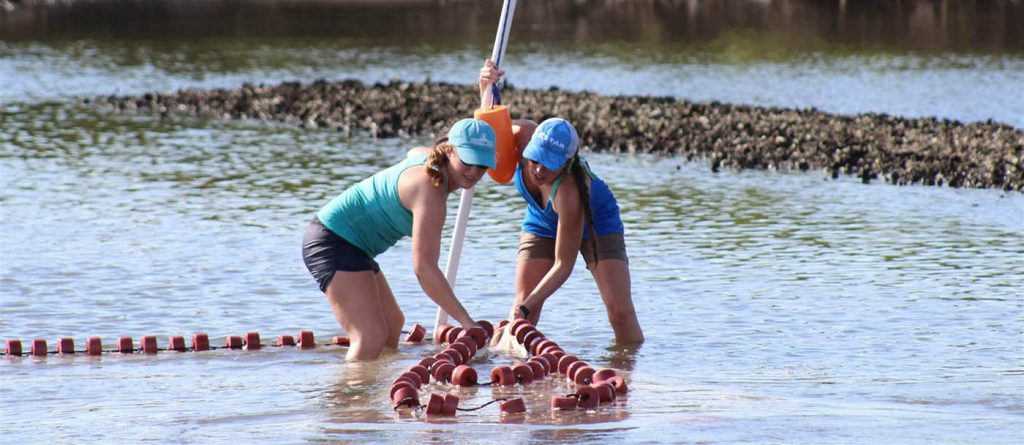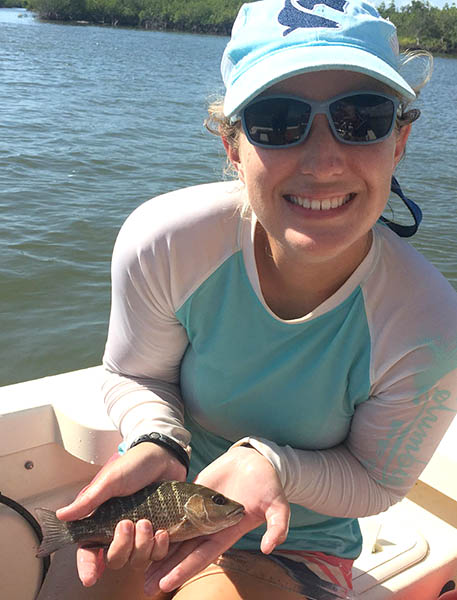2018 Fellow Brittany Troast

Troast, left, and fellow student Dakota Lewis Lewis deploy a seine to collect fish for their research.

Brittany Troast holds a gray snapper (Lutjanus griseus) before taking its measurements in the Mosquito Lagoon in east-central Florida.
Brittany Troast was among two Forage Fish Research Program fellowship recipients in 2018, the second year of the fellowship program. While completing her master’s degree in biology at University of Central Florida, Brittany researched the effect of changing populations of forage fish on the abundance and diversity of predators and predator-prey relationships in the Indian River Lagoon and St. John’s River.
Troast hopes the information she gathered will help fishery leaders make big-picture decisions and manage ecosystems as a whole rather than focusing on only individual species. According to Troast, “We can manage the system from the bottom up instead of putting a Band-Aid on one species at a time, sometimes the solution is not just to limit the catch of a declining sport-fish population, but also improve the abundance of its prey.”
During Troast’s study, she analyzed over 20 years of fishery-independent monitoring data on forage fish such as pilchards, anchovies, and pinfish, which are important prey for larger sport fish such as red drum, tarpon, and snook. She also explored why forage fish are plentiful in some years and less so in others.
“A lot of people think humans have control over everything, but the oceans and our natural systems are bigger than us,” says Troast, who also has a bachelor’s degree in marine science from the University of Florida. “Everything we do has a ripple effect. It goes back to understanding that everything is connected. There is a way for people to respect the planet but also enjoy it, and we have to figure out how to do this sustainably.”
Some of Brittany’s research results have been published here: Multidecadal shifts in fish community diversity across a dynamic biogeographic transition zone
Following her graduate studies, Brittany transitioned her experience and into a career as an Ecosystem Assessment Scientist at the Cooperative Institute for Marine and Atmospheric Studies which is a collaboration between NOAA and the University of Miami.